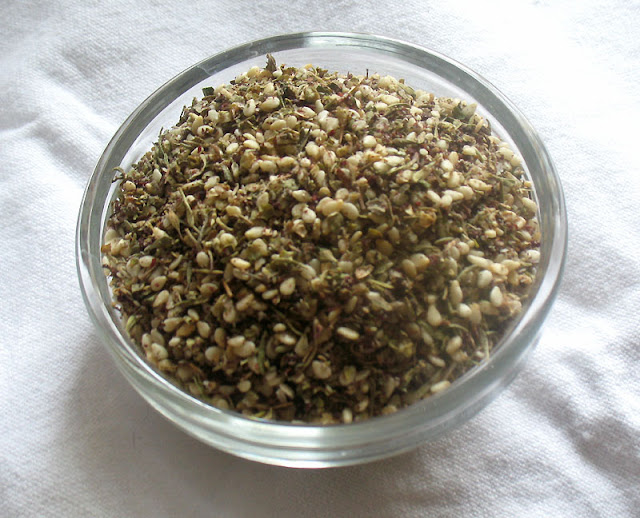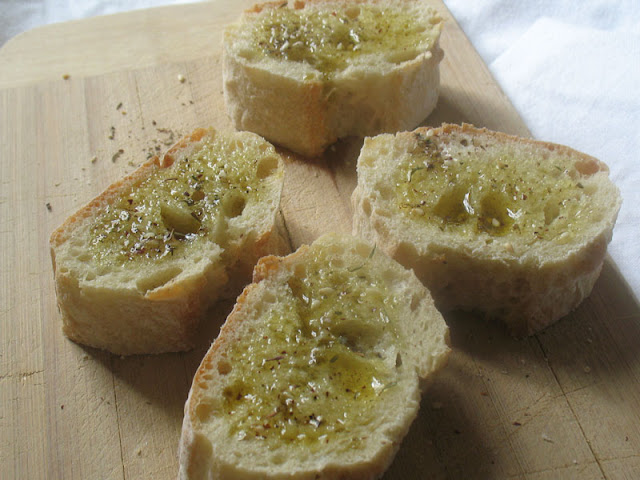My first taste of this popular Middle Eastern herb and sesame seed blend was an extraordinary burst of tangy, zesty and salty flavors. I make a lot of spice blends for my kitchen from scratch, but never one that tasted so good just on its own. In fact, it is eaten almost on its own, often served with just bread and olive oil. Highly aromatic as well as delicious, consider using za'atar to make simple oil or yogurt dressing or sprinkle it on fresh tomato slices or Middle Eastern vegetable dishes.
Although recipes for za'atar — also spelled as "zahtar", "zatar" or "zaatar" — vary from region to region and even from family to family within the Middle East and North Africa, each preparation features a combination of dried herbs such as thyme, oregano or marjoram mixed with ground toasted sesame seeds and salt. Other seeds or herbs are also sometimes added according to the local or family custom. This version includes black salt — also called rock salt — and dried fenugreek leaves to impart a smokier and tangier flavor. Dried sumac — the berry of a small temperature deciduous shrub — is also commonly added. Ground to a powder, sumac is easily found in any Middle Eastern grocer and in many Asian grocers.
 Homemade Za'atar Homemade Za'atar |
| Recipe by Lisa Turner Cuisine: Middle Eastern Published on November 18, 2014 A tangy, zesty and salty blend of herbs and toasted sesame seeds from the Middle East  Print this recipe Print this recipeIngredients:
|
Other homemade spice blends to liven up your food:
Garam Masala
Curry Powder
Goda Masala
Sambar Powder
On the top of the reading stack: Plenty More
Audio Accompaniment: Thomas Tallis



ليست هناك تعليقات:
إرسال تعليق